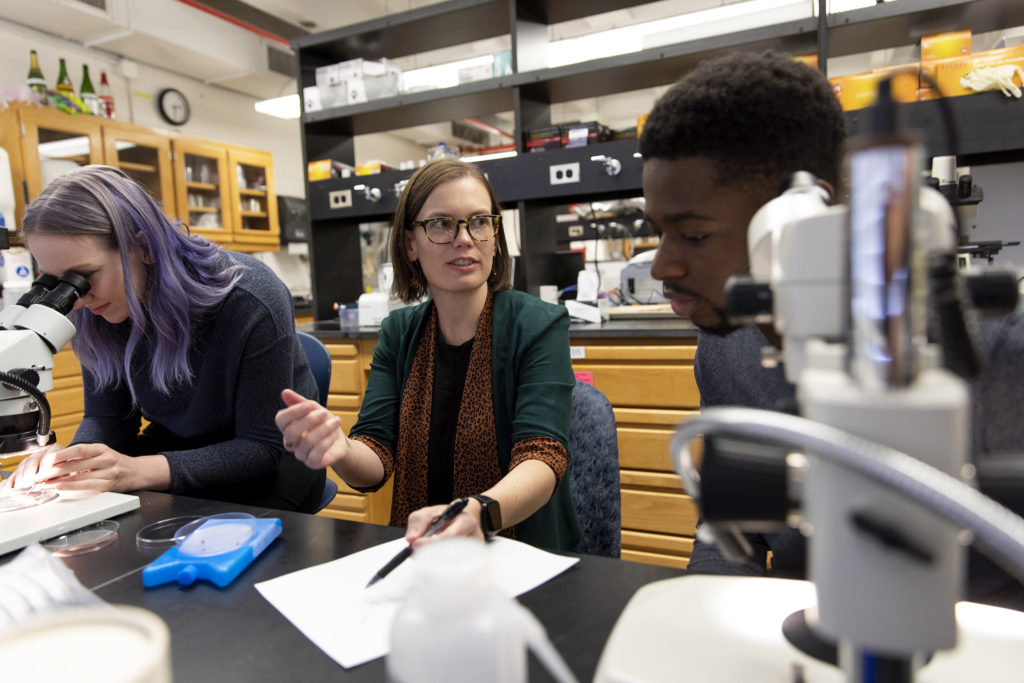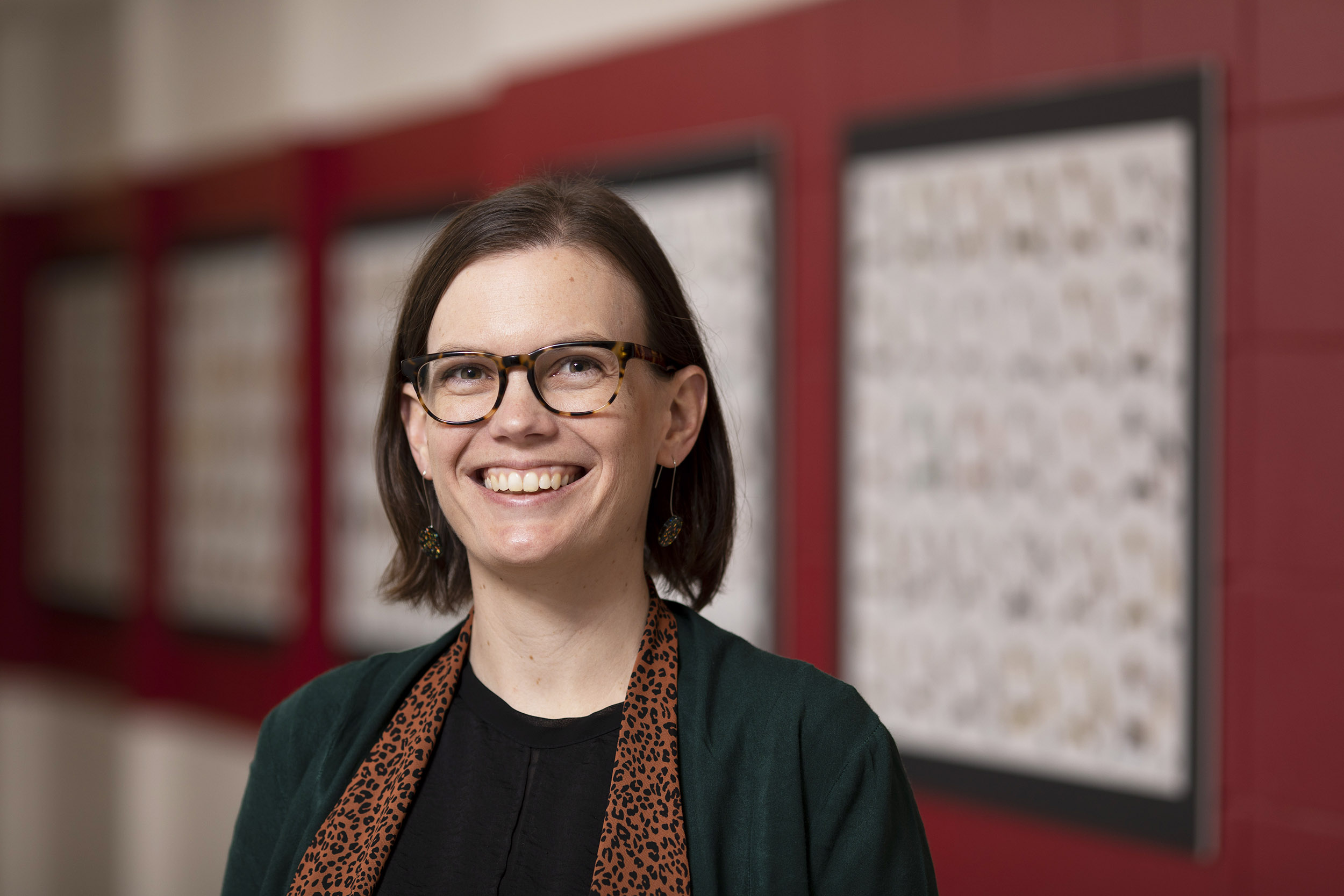Gaelen Burke, an assistant professor in the College of Agricultural and Environmental Sciences, uses active learning strategies with her students and in outreach programs to middle school students across the country.
When did you come to UGA and what brought you here?
I first came to UGA in 2011 when I joined the entomology department to work with Dr. Michael Strand as a postdoctoral researcher. My Ph.D. research had focused upon beneficial bacterial symbionts that are present in insects that feed on plant sap and function to supplement hosts with nutrients absent or rare in their diet. As someone who wanted to continue to work on beneficial insect-microbe interactions, I was drawn to Dr. Strand’s fascinating research on parasitoid wasps (wasps that attack, lay eggs and kill other insects). Some of these wasps produce beneficial viruses that are injected into hosts along with eggs and are essential for successful parasitism. In 2014 I became an assistant professor in the entomology department and have developed a research program that combines interests from my Ph.D. and postdoctoral research to understand how microbes can benefit insects at a genetic level.
What are your favorite courses and why?
My favorite course is “Life on Six Legs,” which I teach along with another young and energetic member of our department, Kevin Vogel. The idea is to teach students about what life science is and how it is conducted using insect biology to demonstrate concepts. I love the course because I use class time to interact with students (I use active learning) and talk with them about all of the fascinating and weird things that insects do! The class was new in 2018, and it fulfills the life sciences requirement for non-majors, so I am hoping that it will grow to become “the class to take” in the future.
How do you describe the scope and impact of your research or scholarship to people outside of your field?
Although microbes such as viruses and bacteria have long been viewed as pathogenic organisms, there is now ample evidence that they can confer major benefits to their hosts and have played a major role in the evolution of life on Earth. In my lab, we decipher the genetic code of insects and their associated microbes to determine which genes they possess and where they came from. We then generate hypotheses about the ways in which insects and microbes can use their genes in new ways to generate new, beneficial characteristics. We can then perform experiments in the lab to test our hypotheses. Understanding how mutualistic associations with microbes evolve and function is essential for a holistic view of the evolution of animals and other organisms.

How does your research or scholarship inspire your teaching, and vice versa?
It might sound unusual, but the National Science Foundation has had the most impact upon my teaching. Early after I started my lab, I developed a grant proposal for an NSF-funded program that encouraged integrating my research with teaching and outreach. At first it was a challenge, then I realized how many diverse ways there are for research to impact teaching at all levels. My proposal was funded, and I am now engaged in interacting with local middle school teachers, from hosting teachers for summer internships to developing course materials. My favorite project right now is working with the Genetic Science Learning Center in Utah to create a module for middle school students to learn about the types of interactions species can engage in, from parasitism to competition to mutualism. We are creating an online interactive experiment in which students will see parasitism unfolding before their eyes. On the flip side, mentoring undergraduates doing research in the lab impacts my research by reminding me of the big picture, and that sometimes simple, straightforward projects can lead to really interesting findings.
What do you hope students gain from their classroom experience with you?
In any class that I teach, I hope that my enthusiasm for the subject is infectious and that students grow to appreciate what they’re learning about. In “Life on Six Legs,” I hope to engage students so that they have fun while they’re learning—and remember what they learn beyond final exams! I want to help students develop skills that are applicable to their lives beyond college and allow them to become informed and astute citizens of the world.
The one UGA experience I will always remember will be …
I vividly remember the day that I was offered a faculty position at UGA. As a postdoctoral researcher at UGA, I knew that that people in my position apply for jobs widely across the U.S. and that often where they end up comes down to luck. I was so happy to learn that I would be able to stay in Athens at such a great university. I couldn’t really believe it at first and was very excited about the opportunities for research and teaching that would be available to me at this institution. The department of entomology has several faculty members who work on insect-microbe interactions, so I couldn’t ask for a better set of colleagues! I also have really come to appreciate the quality of undergraduates and graduate students at UGA. I have had many very capable and talented undergraduates engage in research in my lab and even stay on for graduate school. I look forward to my next big UGA experience that will be a very proud moment … the graduation of my first Ph.D. student!


